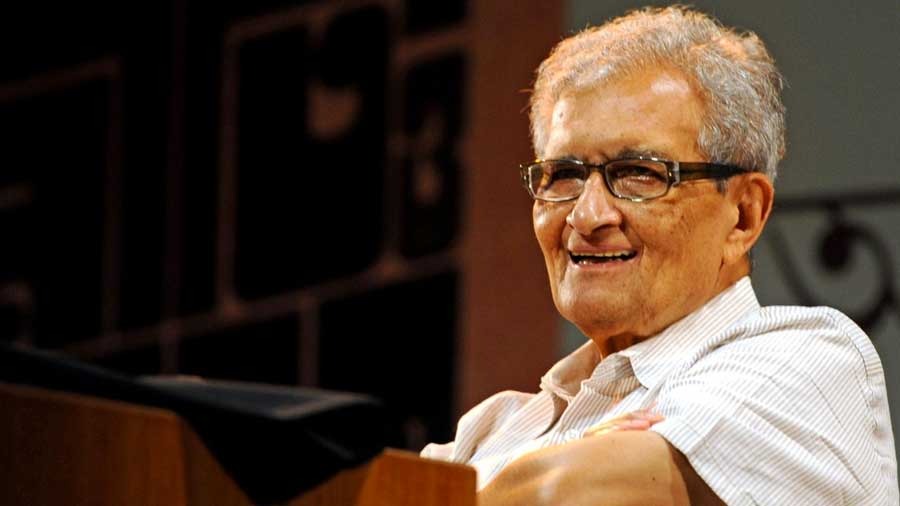Many years ago, I was invited for a screening of my documentary on Amartya Sen at the United Nations in Mexico City. A colleague of mine at Cornell University, Luis Felipe, who went back to Mexico City as a senior government official after a stint at the World Bank, hosted me. The screening was at a grand cinema theatre and the crowd mainly comprised academicians and senior bureaucrats.
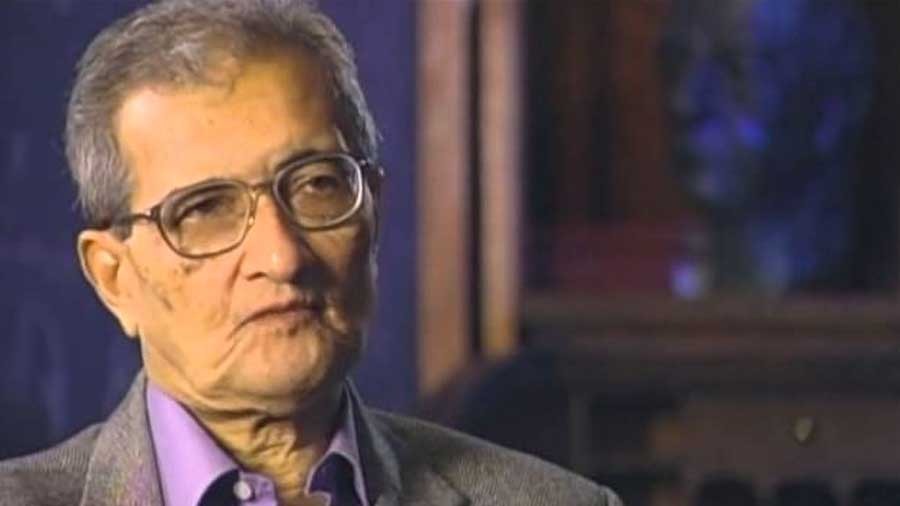
A still from ‘Amartya Sen: A Life Reexamined’ YouTube
Minutes before the screening of Amartya Sen: A Life Reexamined was supposed to start I could sense a commotion. When I turned back I saw there were hordes of media and camera flashes around for someone who had just arrived, clearly a big celebrity. He was a young dazzling guy and so I thought that he must be a film star, but why was he here? I was puzzled when I realised he was enquiring about me. He quickly shook hands with me but there was hardly any time for even introductions since the paparazzi were all over him. He rushed inside the hall, telling me that he would be waiting inside.
Alejandro will introduce Amartya Sen
When I asked Louis who this young man was, he told me that this was Alejandro Ramirez, son of one of the biggest business tycoons in Mexico, of the Ramirez group. He was like an Ambani of Mexico. I understood the craze now but then I asked Louis, what was he doing here? Why would a business tycoon be interested in a documentary on an economist? Louis just smiled at me and said, “Let’s get inside. Alejandro will introduce the film.” I was completely at a loss.
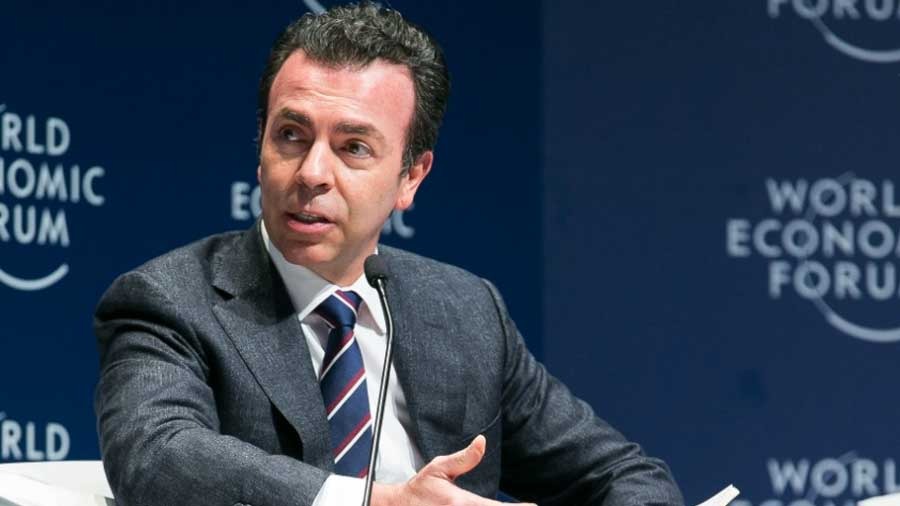
Alejandro Ramirez still names Amartya Sen as one of his greatest influences Benedikt von Loebell/World Economic Forum
Before the film started, Alejandro introduced Amartya Sen like few I had seen before. He started talking about Santiniketan, Presidency College, and then went on to explain Sen’s contribution to the world of economics. I was stunned by his brilliant introduction. But I still did not have the answer to my query. Soon after the film ended, he came to me and thanked me for the film and said that he would meet me at dinner. He had to rush out for some urgent work, but I could also sense that he was in a hurry to escape the paparazzi waiting outside.
You know Suman, this man changed my life
Dinner was at a fancy restaurant. I was there with some UN officials and Louis. Soon Alejandro joined us. I could not control my curiosity and even before he ordered his drinks I asked him, what is going on? The first thing he said was, “You know Suman, this man changed my life. The subject of your wonderful film.”
Then he told me the entire story over drinks and dinner. He had gone to Harvard University for an undergraduate degree. That was a common practice there amongst the heirs of business families where after completing a degree from an Ivy League school in the US they assumed responsibilities of the family business. At Harvard, Alejandro took a course by Amartya Sen on poverty. He told me that that course changed his outlook towards life. He had not thought about those issues and this left him wanting to know more.
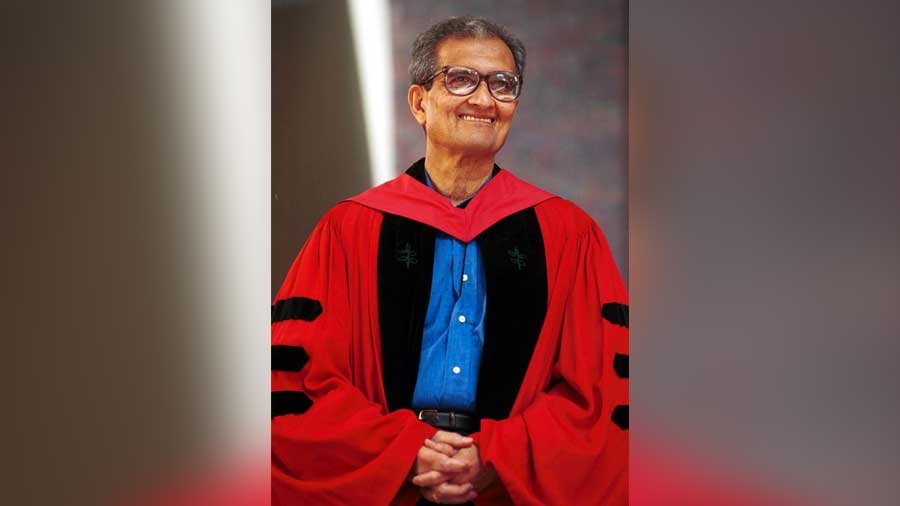
Amartya Sen accepts an honorary degree at Harvard University. Alejandro took a course at Harvard by Amartya Sen on poverty — a course that changed his outlook towards life Darren McCollester/Newsmakers
This was around 1997. Sen moved from Harvard to Cambridge as the Master of Trinity College around that time. Alejandro also moved to England, the world of economics and development economics in particular engaged and engrossed him.
In England, Alejandro did a Masters in development economics and wrote a thesis under Sen. The world of economics fascinated him and he decided to continue his studies by doing a PhD under Sen. The problem started then. Alejandro’s family was going through a major business crisis but he had little or no interest in that world by then. When he confessed this to his father, he was understandably furious. “How much will you earn by doing a PhD in economics with some professor in England?”.
My professor just won the Nobel!
As it would happen, the same year Amartya Sen received the Nobel prize in economics. This was 1998. Alejandro told his father, “Dad, my professor just won the Nobel prize!” His father was taken aback. Realising that things were getting out of control, he decided to talk to Amartya Sen. He described the entire situation and pleaded with him to convince Alejandro.
Sen did just that. He had a chat with Alejandro and asked him to take up the reins of the business for now, he could always return to research in economics later.
Alejandro obliged and went back to Mexico. Interestingly, he never abandoned his passion for economics. While he devoted weekdays to the family business, he spent weekends continuing his economic research and serving as a part-time consultant to presidential candidate Vicente Fox, who was then governor of the state of Guanajuato. “I didn’t want to abandon the business or my research, because both were important to me,” Alejandro was quoted as saying.
Cinepolis success story and research in poverty

Alejandro Ramirez’s hugely successful business model of Cinepolis is taught as a Harvard Business School case study Shutterstock
After Vincente Fox became the president of Mexico, Alejandro was asked to join the government but he decided not to. He instead joined Harvard Business School as a part-time lecturer. He became very successful in business too and started Cinepolis (yes, the theatre chain that exists all over the world) a few years later. On the one hand his hugely successful business model of Cinepolis is taught as a Harvard Business School case study and on the other hand he continues to work on research in poverty and human development.
Even now in press interviews he names the Nobel laureate as one of his greatest influences. “Professor Sen has changed the way governments and international organisations define and measure development. People who are intellectually courageous really move the frontiers of knowledge,” he says.
I am so proud of him: Sen
Many years later, I mentioned the story to Amartya da at a dinner in Washington DC. He smiled and reminisced very fondly about his unusual student. He still remembers the Masters thesis Alejandro wrote in England. “It was really a very good piece of work. I am so proud of him,” he told me.
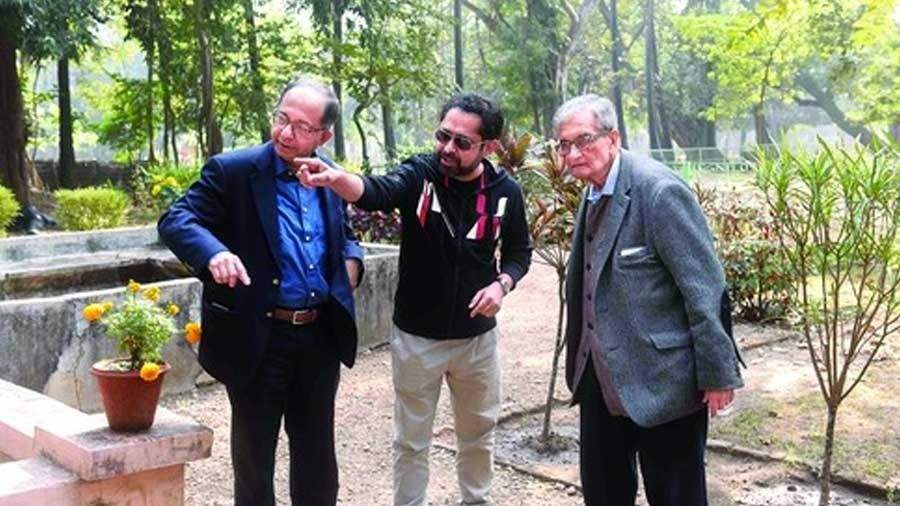
Suman Ghosh (centre) directs Kaushik Basu (left) and Amartya Sen on the campus of Visva-Bharati, Santiniketan TT archive
Suman Ghosh is a professor of economics and a National Award-winning filmmaker. He made the documentary Amartya Sen: A Life Reexamined, which later evolved into The Argumentative Indian.
